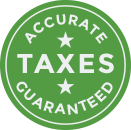Second Quarter Estimated Payment Due 6/17!
Believe it or not, we are almost six months through the year. If you are a member of the clergy who is treated as self-employed in regards to Social Security and Medicare taxes, your second quarter estimated payment is due on 6/17/2019. The United States has a pay-as-you-go tax system. The Internal Revenue Service expects…
What is the Estimated Tax Penalty?
The United States has a “pay-as-you-go” tax system. Rather than waiting for the end of the year to get their taxes, the government wants taxpayers to pay smaller portions of tax throughout the year. For most wage-earners, they don’t even need to think about it- Their employer takes money out of their paycheck and pays…
First Quarter Estimated Payment Due
In addition to filing and paying your 1040 return, your first quarterly estimated payment will be due on April 15, 2019. If you are a Clergy Financial client and have not yet received your updated estimated payments for 2019, you should continue to pay the same estimated amount to federal/state as you have in the…
Government Shut Down, but Estimated Payments Still Required.
Even though the Government is currently shut down, IRS has not yet changed any of the deadlines for making estimated payments. This means that if you are required to make quarterly estimated payments, your final estimated payment for 2018 is still due Tuesday, January 15th of 2019. Make sure you remember to make your last…
Reminder: Third Quarter Estimated Taxes Due!!!
Clergy are subject to estimated tax payments on a quarterly basis which include federal, social security and state taxes. For example, when you receive clergy income in the first quarter of the year, the taxes are due at the end of that quarter. The year is divided into four payment periods, or due dates, for…
Why is the second quarter of estimated quarterly taxes only two months?
Estimated tax payments under the Tax Adjustment Act of 1966 (Public Law 89-368) The Tax Adjustment Act of 1966 (Public Law 89-368) significantly altered estimated tax payment requirements in the United States. Estimated taxes used to be paid based on a calendar quarter, but in the 60’s the Oct due date was moved back to…
How Can Clergy Pay Estimated Taxes?
How to pay estimated tax. You normally make estimated tax payments four times a year. The dates that apply to most people for 2016 are April 18, June 15 and Sept. 15. There is one last payment on Jan. 17, 2017. You can pay online, by phone or from your mobile device. Direct Pay is…
When Paying the IRS, Handle Checks With Care
Always provide the reason for the payment, the form number, and tax year on the front of the check – for instance, “balance due on 2015 Form 1040” or “2016 estimated payment.” Also include your daytime telephone number and Social Security number (joint filers should enter the number shown first on their return). Writing separate…
Clergy Estimated Tax Payments
Clergy are subject to estimated tax payments on a quarterly basis which include federal, social security and state taxes. For example, when you receive clergy income in the first quarter of the year, the taxes are due at the end of that quarter. The year is divided into four payment periods, or due dates, for…
Still Time to Act to Avoid Surprises at Tax-Time
Even though only a few months remain in 2014, you still have time to act so you aren’t surprised at tax-time next year. You should take steps now to avoid owing more taxes than you expect. Here are some actions you can take to bring the taxes you pay in advance closer to what you’ll…






